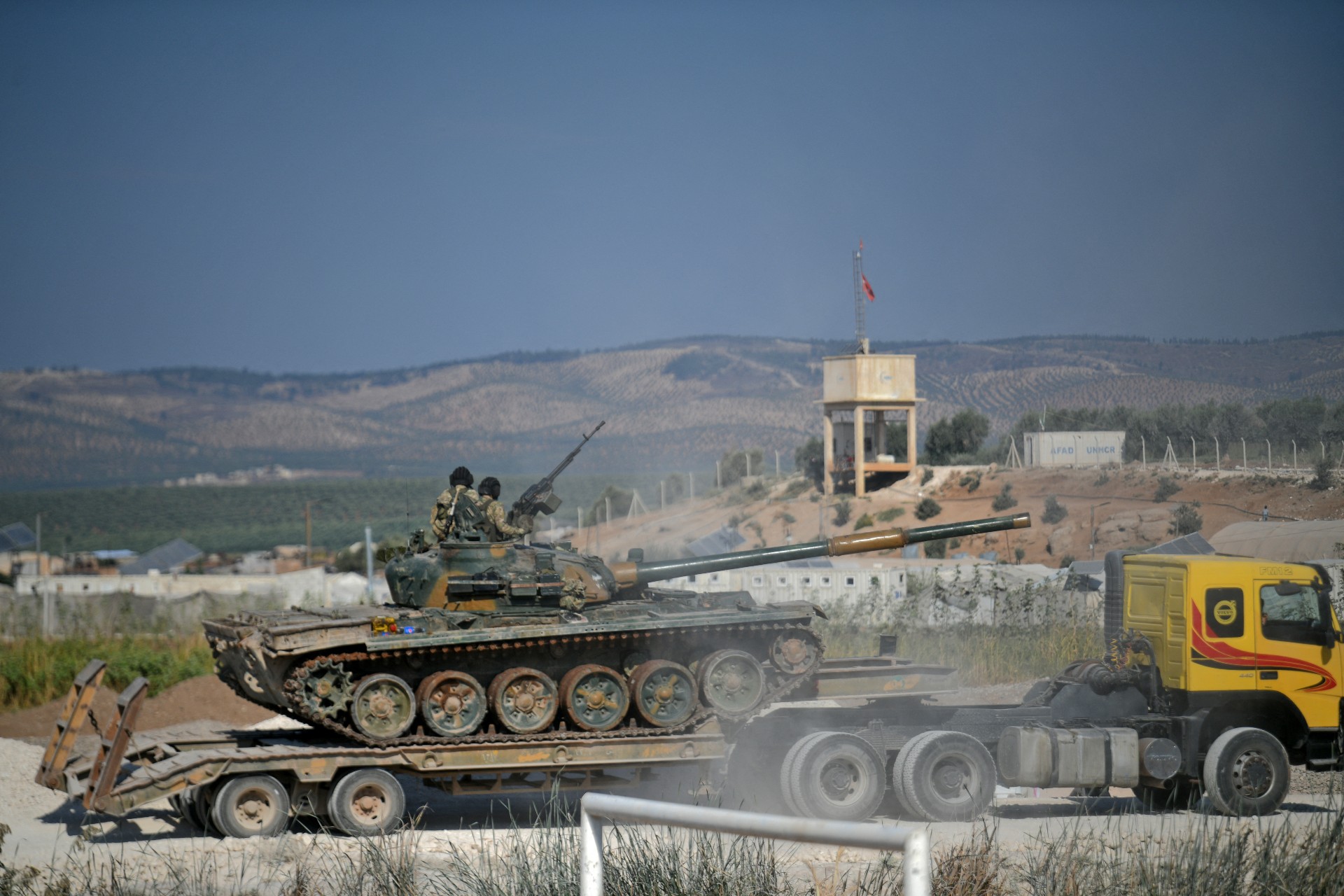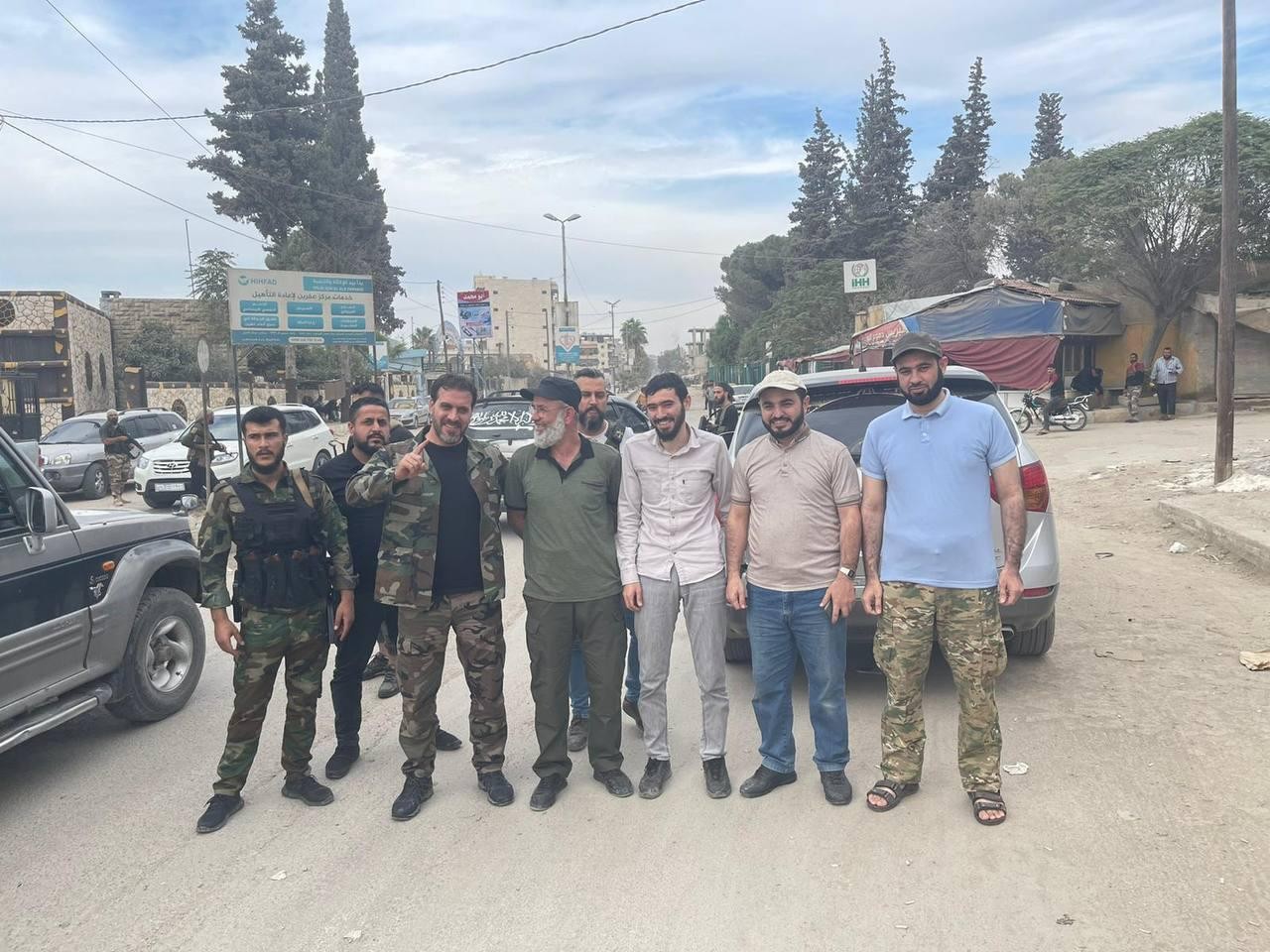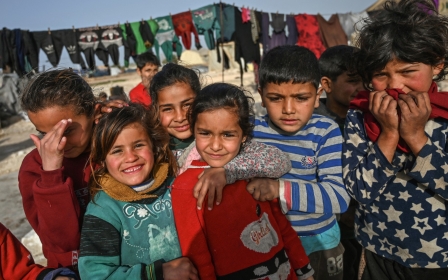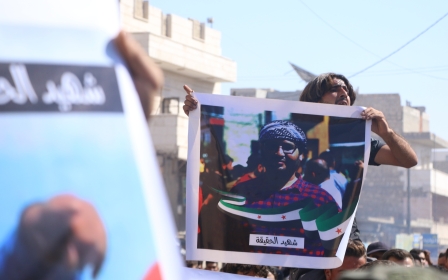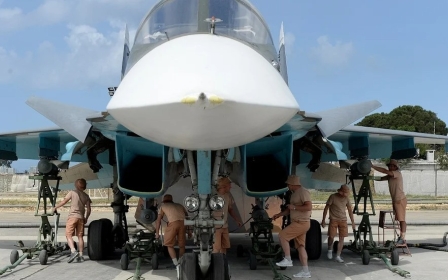Syria: HTS militants storm into Afrin as infighting rips through rebel-held areas
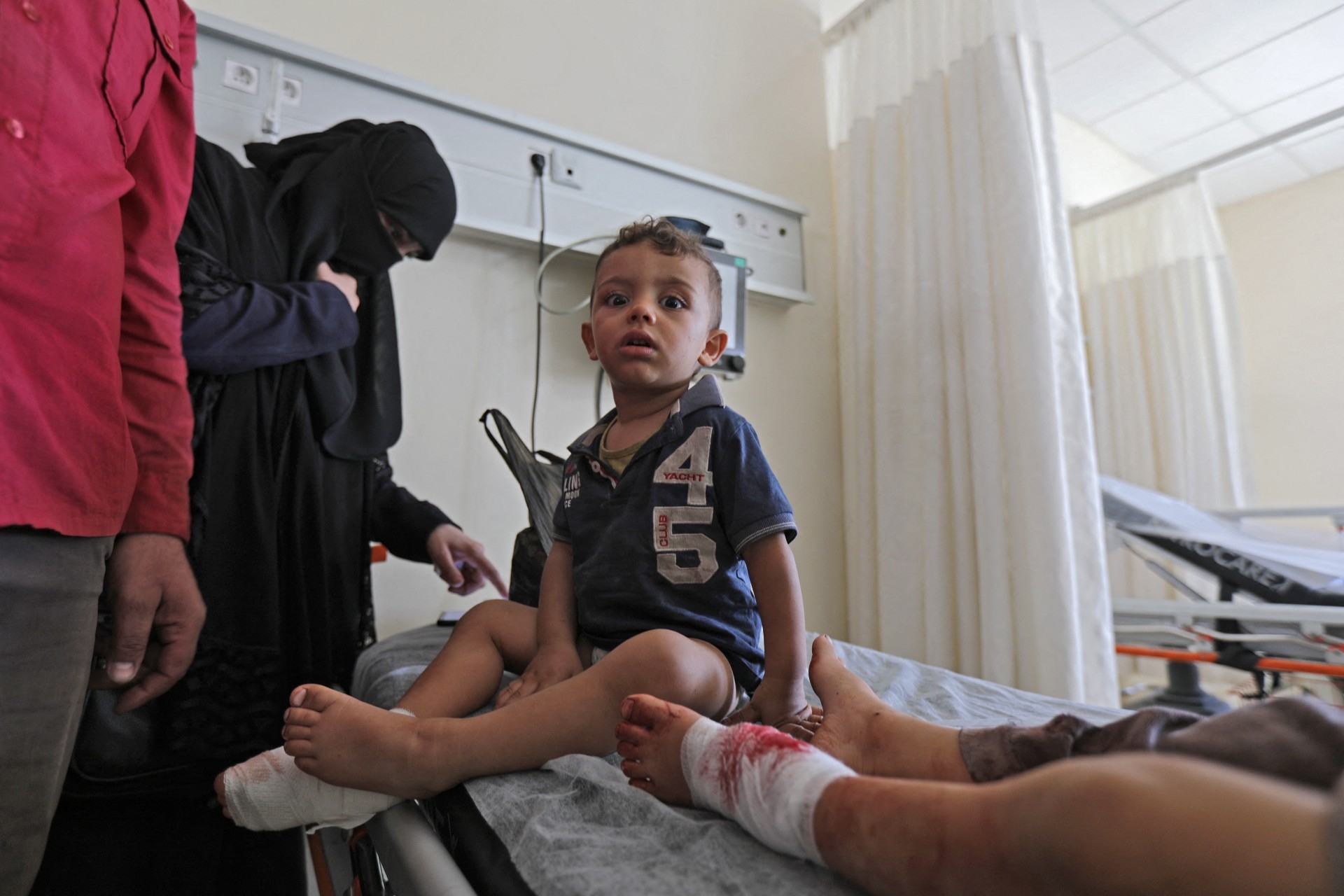
Ferocious rebel infighting in northwest Syria has allowed the Hay'at Tahrir al-Sham (HTS) militant group to seize Afrin, the strategic Aleppo province city that had been held by Turkish-backed forces.
One civilian has been killed and several more wounded in the fighting, which was triggered by the assassination of a prominent Syrian activist last week. At least a dozen rebels have also been killed, activists said.
HTS, the former al-Qaeda branch that controls most of Idlib province to Afrin's west, on Thursday pushed heavily armed convoys into Afrin and the surrounding countryside, and is reportedly now heading towards Azaz.
The militant group, by far the strongest remaining rebel faction, has allied with former foes including the Hamzah Division, Sultan Suleiman Shah Division, Ahrar al-Sham and the remnants of the Nour al-Din al-Zenki Movement, all rebel factions that belong to the Turkish-backed Syrian National Army (SNA) grouping.
Together they launched an offensive against the SNA's Third Legion, which includes prominent rebel groups such as the Levant Front and Jaysh al-Islam.
New MEE newsletter: Jerusalem Dispatch
Sign up to get the latest insights and analysis on Israel-Palestine, alongside Turkey Unpacked and other MEE newsletters
The SNA was established under Turkish guidance by gathering various rebel groups whose strength was badly hit by years of fighting against pro-Syrian government forces and HTS. It has three main legions and includes several factions, most of whom are from specific areas of Syria. Sources estimate the SNA to have around 50,000 fighters.
Sources told Middle East Eye there is a security deal between HTS and the groups it is fighting alongside, which includes preventing the expansion of Jaysh al-Islam, a hardline group of fighters displaced from eastern Damascus.
One opposition activist, who, like others, spoke on condition of anonymity due to the sensitivity of the situation, said: "HTS may withdraw from the areas it controls in Afrin because it does not have sufficient numbers of fighters to deploy in these areas."
However, late on Thursday images began to circulate online showing HTS militants charging towards Azaz, a highly strategic town on the Turkish border.
Assassination plot revealed
Rebel infighting began this week when fighters belonging to the Third Legion examined surveillance camera footage that showed that Muhammad Abdul Latif, a prominent activist known as Abo Ghanoum, had been shot dead by a hit squad linked to the Hamzah Division.
One of the suspects was subsequently wounded while Third Legion forces detained him, and the Hamzah Division handed the hit squad's leader over to the local military police.
Abo Ghanoum's killing had outraged the people of al-Bab, the Aleppo province city in which he lived and died, and the latest developments prompted them to demand the dissolution of the Hamzah Division.
In response, the Levant Front attacked the Hamzah Division's al-Bab headquarters. On social media, pictures of explosive devices and secret prisons were circulated, purporting to belong to the Hamzah Division.
"Al-Bab city is a major stronghold for the Levant Front and Jaysh al-Islam, so there was great support for the attack on the Hamzah Division, even though it handed over all the suspects involved in the case," a second activist told MEE.
Fighting quickly expanded, and while the Third Legion had initial successes, within hours the momentum shifted. Sources said the Levant Front was unable to attract support from other rebel groups because of its alliance with Jaysh al-Islam, a widely disliked faction.
The Levant Front is a group of factions closely linked to the remnants of the Islamic Front, which at the height of its power in 2015 was an alliance of Islamist groups including Jaysh al-Islam, Ahrar al-Sham and Nour al-Din al-Zenki.
The Hamzah Division, meanwhile, has cultivated close ties to Turkey.
"The Hamzah Division is a group of displaced fighters from Aleppo that enjoy Turkish intelligence and military support, and it receives special support from Turkish experts to develop local armoured vehicles similar to Turkish ones," a third activist told MEE. Locally, the Hamzah Division is nicknamed "Turkey's spoiled child".
The turning point was the entry of the Sultan Suleiman Shah Division, a feared rebel faction that swept the Levant Front from villages north of Afrin. For the Sultan Suleiman Shah Division, the fighting was a chance to settle a score, as the Levant Front had earlier this year supported an investigation into sexual abuse and theft conducted by the division's fighters
Within hours on Thursday, HTS had taken the city.
"If Turkey had not been satisfied with HTS' move towards Afrin, it would have moved military forces to repel it, as it has done on several previous occasions, but things seem to be agreed," a rebel leader affiliated with the SNA told MEE.
"Turkey does not appear ready to abandon the Hamzah Division and Sultan Suleiman Shah Division at all."
Colonel Mustafa al-Bakour, a leader of the Jaysh al-Izza rebel group stationed in Idlib, told MEE he believed that HTS would not withdraw from Afrin.
"It seems that HTS has allies in Afrin to help, so it does not need to withdraw its men from Idlib. I do not think that there will be a clash with the rest of the factions that remained neutral in Afrin," he said. "HTS has previous experiences in reaching agreements in similar cases."
Middle East Eye delivers independent and unrivalled coverage and analysis of the Middle East, North Africa and beyond. To learn more about republishing this content and the associated fees, please fill out this form. More about MEE can be found here.


